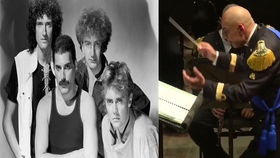Understanding Beowulf: A Comprehensive Overview

Beowulf, an ancient epic poem, stands as a cornerstone of Old English literature. Its narrative, rich in symbolism and cultural significance, has captivated readers for centuries. In this detailed exploration, we delve into the various dimensions of Beowulf, offering you a comprehensive understanding of this timeless masterpiece.
Background and Context

Composed around the 8th century, Beowulf is believed to have originated in what is now England. The poem is set in the heroic age of the Germanic peoples, a time of warrior culture and oral tradition. The story revolves around the protagonist, Beowulf, a Geatish warrior, and his battles against monsters and dragons.
Characters and Their Roles

Beowulf, the central figure, is celebrated for his bravery, strength, and leadership. His journey from a young warrior to a revered king is a testament to his heroic qualities. Other key characters include Hrothgar, the Danish king who builds the great hall Heorot, and Grendel, the fearsome monster that terrorizes the kingdom.
| Character | Role |
|---|---|
| Beowulf | Protagonist; Geatish warrior |
| Hrothgar | Danish king; builder of Heorot |
| Grendel | Monster; attacks Heorot |
| Grendel’s Mother | Water-witch; seeks revenge on Beowulf |
The Narrative Structure
Beowulf is divided into three main parts. The first part introduces Beowulf and his arrival in Denmark. The second part focuses on Beowulf’s battle with Grendel and his mother. The final part explores the aftermath of the battles and Beowulf’s rise to power.
Themes and Symbolism
Beowulf explores several themes, including heroism, loyalty, and the struggle between good and evil. The poem also delves into the concept of fate and the human desire for immortality. Symbolism plays a significant role in the narrative, with elements such as the dragon representing the ultimate nemesis and the sea representing the unknown.
Cultural and Historical Significance
Beowulf provides valuable insights into the social and cultural practices of the Germanic peoples. The poem reflects the importance of kinship, fealty, and the warrior code. Additionally, it offers a glimpse into the political landscape of the time, highlighting the power struggles and alliances between different kingdoms.
Legacy and Influence
Beowulf has had a lasting impact on literature and culture. Its themes and characters have inspired countless works of art, music, and film. The poem’s enduring popularity can be attributed to its timeless narrative and the universal values it represents.
Conclusion
Beowulf is a masterpiece of Old English literature, offering a rich tapestry of storytelling, symbolism, and cultural significance. By exploring the various dimensions of this epic poem, we gain a deeper understanding of its impact on literature and society. As you continue to delve into the world of Beowulf, you’ll discover the timeless lessons and enduring charm of this classic work.